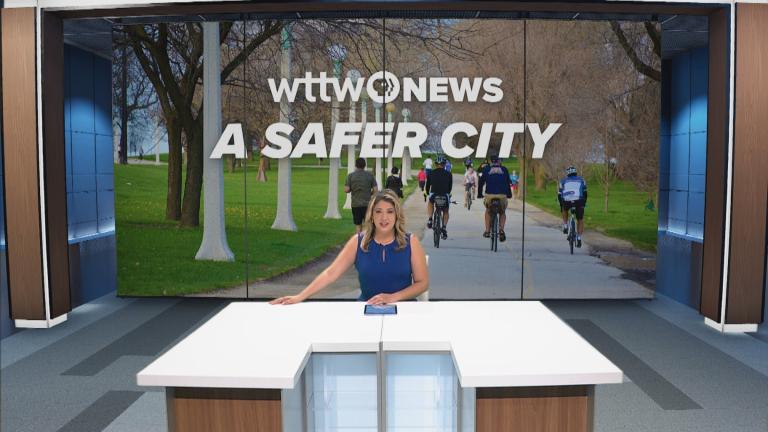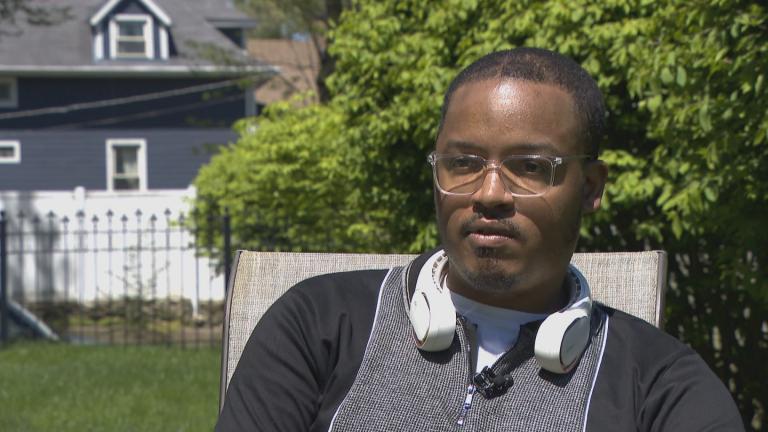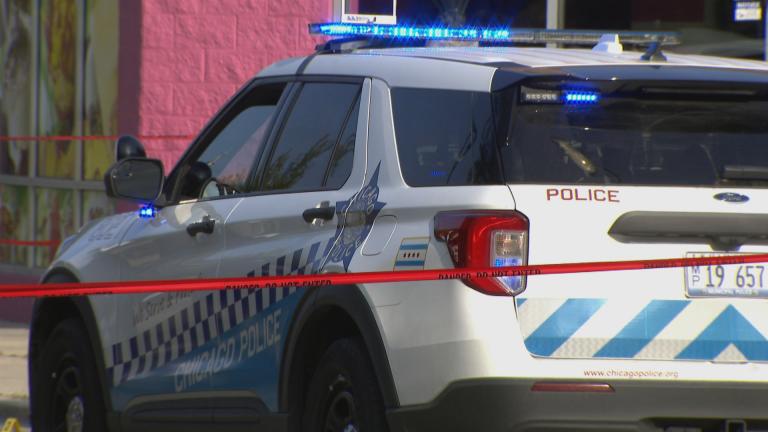Throughout the summer, Mondays in Chicago often mean news outlets are all covering some version of the same story: the weekend’s violence.
Jalia Davis, 19, says she’s not one for watching local TV news because of the way it approaches coverage around violence.
“They don’t show the love that we show, and how we support each other in neighborhoods we help out — when people are walking down the street ‘hey, how are you doing?’” she explains. “They don’t show that part.
“I don’t watch the news because it’s kind of traumatizing to listen to before you go to sleep. Once again, it’s always negative, instead of the positive,” Davis said. “When you hear about Chicago, they always talk about the bad things, so much violence.”
Nate Suggs, 24, points to a lack of context in mainstream media coverage.
“How you portray a subject in its fullness truly affects how someone can digest it,” Suggs explains. “I think we don’t really contextualize people who we define as perpetrators as victims. We don’t understand how a lack of resources affects the decision making, how they have themselves been victimized by the system they're trying to thrive in.”
Both Suggs and Davis are participants in Free Spirit Media, a nonprofit that works with young people 11 to 25 years of age from the West and South sides of Chicago. Staff members work to teach students to create media arts projects, like short films and news stories, to amplify their own voices.
“They’re their own heroes … it’s up to them to tell their own story, they have the means, especially in the age we’re existing in,” explains FSM Creative Pathways Director Candice Abioye.
Recently, participants received training from a Free Spirit alumnus, photographer Vashon Jordan.
“Learning about the different types of camera, the camera benefits, what to look for in the camera,” Davis said, describing the day’s session. “How he started from this specific program gave me hope that I could be anything.”
The idea is that by learning to tell their own stories, participants can change the narrative about their community.
“I just want them to know it’s OK to be yourself, you don’t have to be no one else. We all go through stuff, no one’s perfect,” Davis says, describing the podcast she hopes to host one day soon.
Abioye also points to the need for stories about the community to come from the community, to snap a complete picture.
“Because we have young people here that are walkable down the street. This is home for [them]. I’m not saying some of this stuff doesn’t happen, but that’s my grandma’s house, that’s my school,” Abioye says, explaining the perception of the people they work with. “So, it’s like, how does the news coverage get on the ground, or let young people already on ground be able to tell those stories, because they understand with the fresh eyes.”
The group hopes more Chicagoans, and those outside the city, can experience their community through the lens of young storytellers like Suggs and Davis.
“I see they always have block parties, or giveaways,” Davis said. “The school they’re actually still open, and they just had a barbecue with a bunch of alumni. So, there’s a lot of giving back, but they don’t show that. I actually experience it. That’s the good part.”







